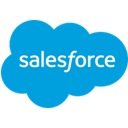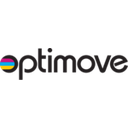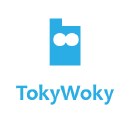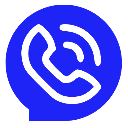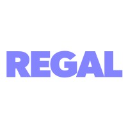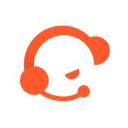Customer Engagement software: purchase guide
What Is Customer Engagement Software?
Customer engagement software is designed to strengthen and sustain meaningful relationships between businesses and their customers. It serves as a digital bridge for nurturing interactions, enhancing satisfaction, and increasing brand loyalty through personalized, timely communication across various channels.
Whether you’re managing a growing customer base or scaling up a global service operation, this type of software helps you stay connected and proactive in your outreach. It transforms the way teams collaborate, track interactions, and refine customer experiences—all from a centralized platform.
How Does It Work?
To build customer confidence, businesses need to consistently assist and delight their clients throughout the journey. Customer engagement software allows you to do just that—remotely and efficiently—via a cloud-based interface. It gives marketing, support, and sales teams a synchronized workspace to orchestrate campaigns, monitor engagement levels, and respond to user needs in real time.
Implementation is straightforward. After subscribing to a monthly or annual plan, you’ll be asked to provide basic business details (company name, size, goals, etc.). From there, you gain access to a personalized dashboard where your team can centralize customer data, plan outreach strategies, and begin interacting with prospects or clients via chat, email, social media, or even video.
Key Features of Customer Engagement Software
Forecasting Capabilities
Effective planning begins with clear objectives. Engagement platforms include modules for setting performance targets, creating campaigns, and tracking progress over time. This enables marketing teams to monitor KPIs and adjust strategies based on real-time insights.
Behavioral Analytics
With integrated AI and machine learning, these tools offer a deep understanding of customer behavior. By analyzing click paths, time on page, conversation history, or transaction patterns, businesses can tailor interactions to each user’s preferences and engagement level.
Community Building Tools
Most platforms offer community engagement features, including forums, feedback tools, and branded social hubs. These spaces not only help collect qualitative insights but also foster loyalty by giving users a space to share experiences and advice.
Omnichannel Engagement
Modern engagement tools support communication across email, SMS, chat, phone, video, and social media—all managed from a single interface. This ensures that businesses can meet customers wherever they are, without losing the thread of the conversation.
Integration with CRM and Automation Tools
Customer engagement platforms are often built to integrate seamlessly with marketing automation, sales enablement, and customer relationship management systems. This means you can use them to trigger campaigns, log interactions, and personalize communications across the customer lifecycle.
Centralized Reporting
Data dashboards give real-time visibility into customer sentiment, support performance, and engagement trends. With these insights, businesses can make faster, more strategic decisions about how to allocate resources or adjust campaign strategies.
Who Uses Customer Engagement Software?
While customer engagement software is suitable for all industries, it’s particularly valuable for customer-centric organizations—especially SaaS providers, eCommerce businesses, service-based firms, and enterprise support teams. Large businesses often invest in advanced platforms to manage complex customer journeys, but modern SaaS solutions have also made these tools accessible to startups and SMEs.
Pros and Cons of Customer Engagement Software
Advantages
Saves time: Automates repetitive tasks such as follow-ups, notifications, and routing through templated workflows.
Improves customer satisfaction: Enables faster, personalized service delivery across multiple channels.
Omnichannel support: Connects with customers on their preferred channels—email, chat, social, or voice—without losing context.
Marketing integration: Works seamlessly with loyalty tools and marketing automation software to enhance campaigns and customer retention.
Centralized analytics: Offers real-time reporting that informs strategic decisions and resource allocation.
Efficiency gains: Reduces workload through AI-powered features and smart routing that optimize team capacity.
Disadvantages
Limited free versions: Entry-level plans often restrict access to key features like automation or advanced analytics.
Learning curve: Advanced platforms may require onboarding, training, or support to fully unlock their potential.
How to Choose the Right Customer Engagement Software
When selecting the best platform for your business, consider the following criteria:
Company Size: Choose a plan that scales with your team. Some platforms are ideal for startups, while others are built for complex enterprise needs.
User Experience: The interface should be intuitive, minimizing training time and allowing your teams to focus on customer conversations.
Support Availability: Look for vendors that offer multiple support channels—chat, email, phone—and responsive onboarding.
Budget: Understand the pricing structure (monthly vs. annual) and check whether features like automation or integrations are included. Don’t hesitate to negotiate if your project spans multiple years.
Top Customer Engagement Software Solutions
| Software |
Best For |
Key Strengths |
Pricing |
| Service Cloud |
Customer service teams prioritizing loyalty |
Highly customizable support workflows, unified service console |
From €75/month, free trial |
| Zoho SalesIQ |
Real-time website engagement and tracking |
AI chatbots, live chat, analytics for sales and support |
From €7/month, free plan |
| Twilio Flex |
Customizable contact centers |
Multichannel support (voice, chat, video), flexible integrations |
Pricing on request, free trial |
| idomoo |
Video-based customer engagement |
Personalized video creation, dynamic content delivery |
Pricing on request, free trial |
| Optimove |
CRM and marketing campaign optimization |
Predictive analytics, audience segmentation, automation |
Pricing on request, free trial |
Conclusion: Why It Matters
In an era where customer loyalty hinges on experience, not just product quality or price, investing in a robust customer engagement platform is more than a nice-to-have—it's a competitive necessity.
From centralizing communication to optimizing response times and driving loyalty, these tools empower teams to offer more personalized, timely, and relevant interactions. Whether you're scaling a small support team or delivering global, omnichannel service, customer engagement software helps align internal efforts with evolving customer expectations.
Ultimately, the right platform won’t just help you manage customer conversations—it will turn those conversations into meaningful, lasting relationships that drive growth and retention.
